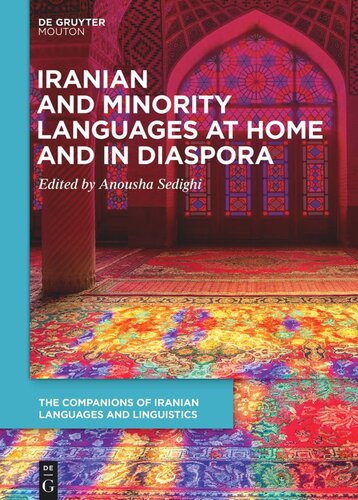

Most ebook files are in PDF format, so you can easily read them using various software such as Foxit Reader or directly on the Google Chrome browser.
Some ebook files are released by publishers in other formats such as .awz, .mobi, .epub, .fb2, etc. You may need to install specific software to read these formats on mobile/PC, such as Calibre.
Please read the tutorial at this link: https://ebookbell.com/faq
We offer FREE conversion to the popular formats you request; however, this may take some time. Therefore, right after payment, please email us, and we will try to provide the service as quickly as possible.
For some exceptional file formats or broken links (if any), please refrain from opening any disputes. Instead, email us first, and we will try to assist within a maximum of 6 hours.
EbookBell Team

4.4
42 reviewsWhile the typology, syntax, and morphology of Iranian languages have been widely explored, the sociolinguistic aspects remain largely understudied. The present companion addresses this essential yet overlooked area of research in two ways: (i) The book explores multilingualism within Iran and its neighbouring countries. (ii) It also investigates Iranian heritage languages within the diasporic context of the West.
The scope of languages covered is vast: In addition to discussing Iranian minority languages such as Tati and Balochi, the book explores non-Iranian minority languages such as Azeri, Tukmen, Armenian and Mandaic. Furthermore, the companion investigates Iranian heritage languages such as Wakhi, Pashto, and Persian within their diasporic and global contexts.
In the current era of migration and globalization, minority and heritage speakers are increasingly valuable resources. By focusing on the speakers, the companion provides new insights into a multitude of sociolinguistic issues including language attitude and identity, language use and literacy practices, language policy, language shift and loss.
The companion is an essential reference for those interested in Iranian languages, minority languages, heritage languages, sociolinguistics, bilingualism, language policy and planning, diaspora and migration studies, as well as those researching in related fields.